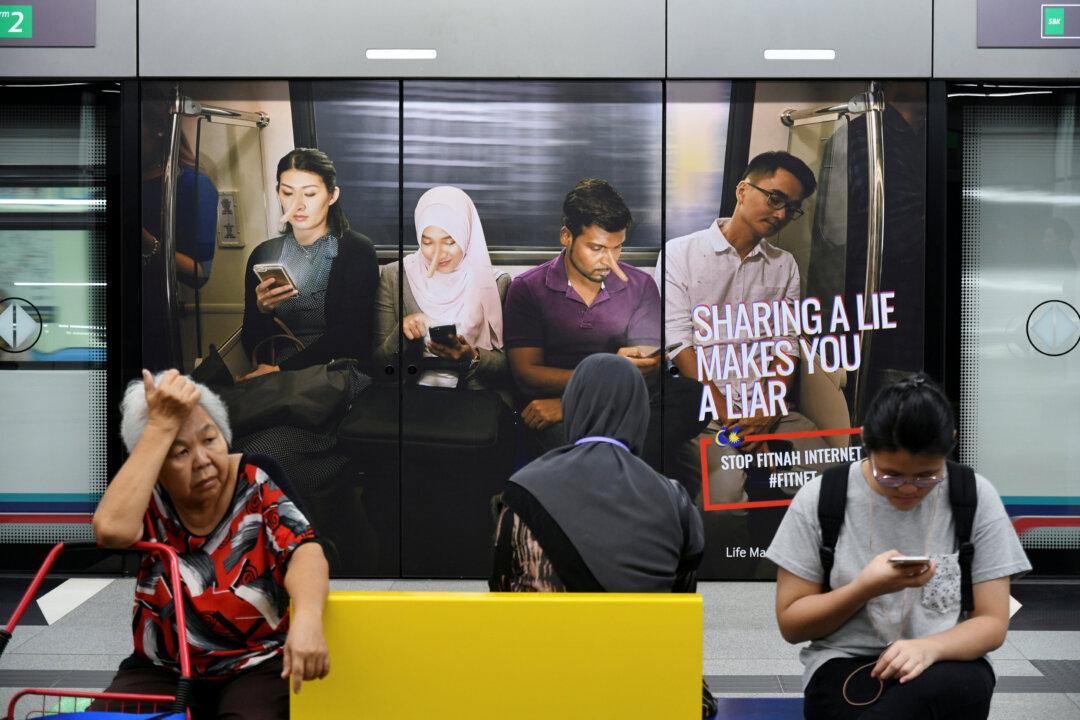KUALA LUMPUR—Malaysia’s opposition-led Senate blocked an effort to repeal a law against “fake news” on Sept. 12, presenting the first major challenge for the new government of Prime Minister Mahathir Mohamad.
Mahathir, 93, secured a stunning election win in May, ending the decade-long rule of former premier Najib Razak and changing Malaysia’s government for the first time in six decades.





